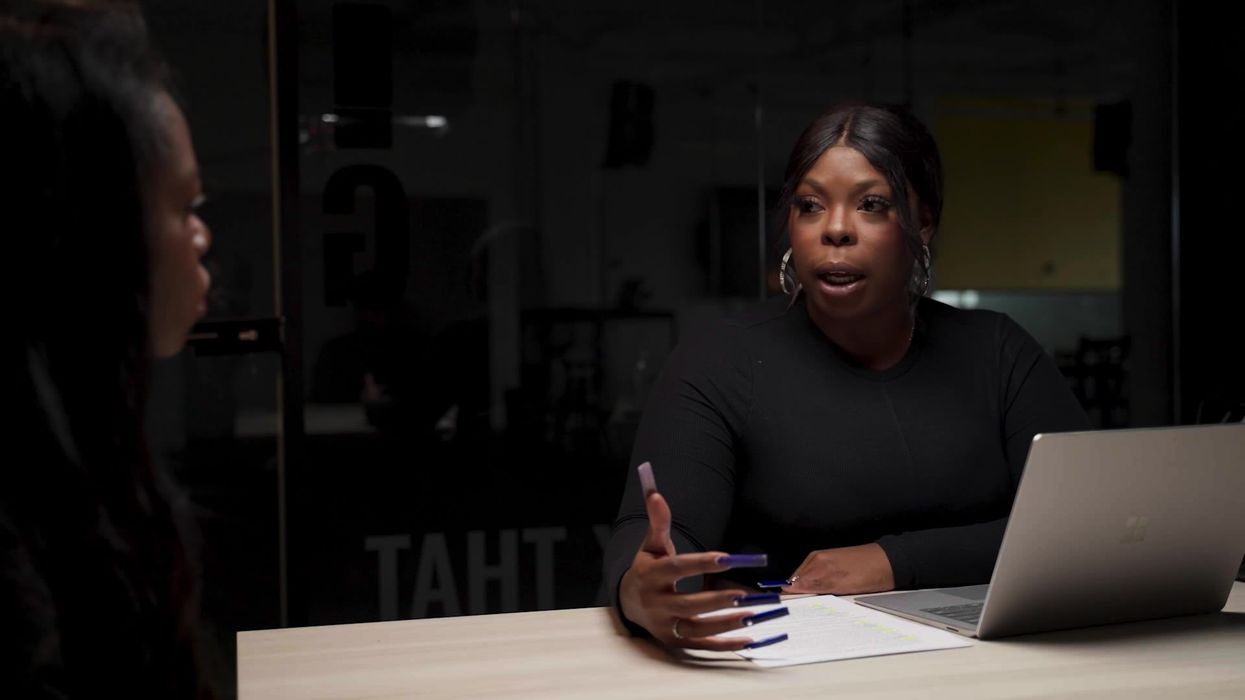
6 Steps to Stop Worrying All the Time and Start Enjoying Life
Everyone has worries, and some worry more than others.

If worrying takes away your joy and focus, it’s time to make a mental shift. We’ve asked experts for their tips to help you worry less and enjoy life more.
1. Use a worry box
Designate some sort of box for storing your worry and concerns. This box can be simple in design. “An empty Kleenex box works great – and use it as your ‘worry box.’ Anytime a worry comes up and you notice yourself worrying for more than five minutes about something, write it down, fold up the paper, and put it in the box,” suggests Jaime Pfeffer, a life balancing and success coach, meditation teacher and author based in Singer Island, Florida.
“It sounds simple, but the physical act of writing things down and ‘turning them over’ is a miraculous thing.”
2. Schedule "worry time"
If you worry a lot, consider setting a time each day -- say 6:30 AM -6:40 AM -- when the only thing you do is worry, says Pfeffer.
Make sure you get all your worries out in that time frame because, for the rest of the day, you're going to be worry-free, she says. “Most people find when they get to their worry time, they have nothing to worry about,” states Pfeffer.
3. Meditate
As worry thoughts are simply thoughts, learning how to detach from them can be hugely beneficial -- especially for anxious or introverted people who can even suffer from cherophobia, the fear of being happy.
“Learning to meditate has a slew of benefits - better physical health, better focus, better relationships - and it's powerful and effective for slaying worries both short- and long-term,” continues Pfeffer.
4. Accept your worries
Sometimes, when we discover a not-so-great part of ourselves, we try to banish it or we beat ourselves up about it, Pfeffer says.
“This is okay and we can have compassion for ourselves knowing that this is a defense mechanism to keep us safe,” she adds. “But, adding insult to injury -- in the case of berating ourselves for worrying -- is not going to help us move forward or feel better. In fact, it can make us feel worse.”
If you find yourself upset or feeling ashamed about worrying, have compassion for yourself and accept you're doing the best you can. “To take this a step further, create a, list of the positives that lie alongside your worry,” Pfeffer says. “For example, people who worry more than the average person are usually great with details. They are usually high in caregiving and nurturing of others, too, and there's nothing wrong worth that.”
5. Dig deep for answers
At its heart, worry is a form of illusionary control, explains Pfeffer.
"Our minds make us think we're safer by worrying, when in fact, worry is only keeping us out of the present moment and from enjoying what's here now,” she says. But, your worries started somewhere, and that's usually in your childhood. Try to think back to your early days, especially between the ages of five to seven years old, because there are often nuggets of gold there, suggests Pfeffer.
“Ask yourself, if, as a child, your environment ever felt unsafe or unstable? Did you lose a parent or caregiver early in your life or experience a move? All of these can lead to a habit of worry later on in life,” she says.
6. Embrace awareness
Everything starts with awareness, says Patricia Young, a certified holistic coach in South Florida.
“There’s nothing we can change or shift in our lives if we’re not aware of it. Worrying too much means that we’re not present, we’re more focused in the future,” she explains.
“When you catch yourself worrying, get excited because that means that you’re becoming more aware, but also, in order to shift your thoughts and be more in the present moment, think about something that you’re grateful for -- look around, there’s always something to be grateful for.”
She stresses that gratitude will help you stay grounded and in the moment. “The brain cannot worry and feel gratitude at the same time so the quickest way to bring yourself to the present, and stop worrying is by connecting with feelings of gratitude,” Young says.































Military Dad Defends His 4 Little Daughters When Strangers Make This Rude Remark
Military Dad of 4 Daughters Defends His Girls When Strangers Make This Rude Remark
Austin von Letkemann is the military officer strangers feel "sorry" for — and the reason is infuriating.
Whenever the devoted father leaves the house with his four children, strangers can't help but notice the officer in uniform is holding hands with 4 adorable little girls. They will tell the traditionally "masculine" and "all American" dad they feel sorry for him, because he has no sons. This dad makes one thing very clear: They are his daughters, they aren't a burden.
In a passionate video, von Letkemann took to Instagram to share with his followers that the only thing that's "difficult" about being a girl dad — is clapping back to these sexist remarks over and over again.
They Mock His Daughters To Their Face
When strangers approach Austin von Letkemann and his four daughters, they don't always realize that their comments are being overheard. They seem oblivious to the fact that his girls understand every word. Von Letkemann describes how people will approach him and, without thinking, make remarks like "I'm sorry" or even joke about his lack of sons. What they don't realize is that these comments, intended to be light-hearted or humorous, can be deeply hurtful to his daughters. These strangers are not just disrespecting von Letkemann's choices as a father; they're also sending a message to his daughters that their presence is something to be pitied. It’s a message that von Letkemann won't stand for, and he's speaking out to defend his girls from these insensitive remarksSaying "Get Your Shotgun" Isn't Funny — It's Sexist
Another common comment that Austin von Letkemann encounters is the old "better get your shotgun ready" trope, often delivered with a smirk or a wink. This line is typically intended to suggest that a father with daughters should be on high alert to protect them from potential "suitors," implying that they are objects to be guarded rather than individuals with agency.
Von Letkemann finds this line of thinking outdated and sexist. In his viral Instagram video, he points out that these jokes are not just stale — they're damaging.
By suggesting that his daughters require armed protection, the joke reinforces the idea that women are inherently vulnerable and need to be shielded from men. Von Letkemann argues that instead of promoting this narrative, society should focus on teaching respect and consent, challenging these sexist tropes at their source.
Watch Austin von Letkemann's Video:
"If I Had A Fifth Child, I'd HOPE It Was A Girl" — One Dad's Message For Other Parents
Despite the constant remarks about his lack of sons, Austin von Letkemann is clear: He wouldn't trade his daughters for anything.
In fact, he told his Instagram followers that if he were to have a fifth child, he would hope for another girl. This declaration isn't just about doubling down on his pride in his family — it's a pointed response to those who see fathering daughters as a misfortune.
Von Letkemann's stance is a powerful one, rejecting the notion that a family is incomplete without sons. He encourages others to question the assumptions behind these comments and to appreciate the joy and fulfillment that his daughters bring. By sharing his story, von Letkemann hopes to create a more inclusive perspective on fatherhood, one that values daughters just as much as sons.